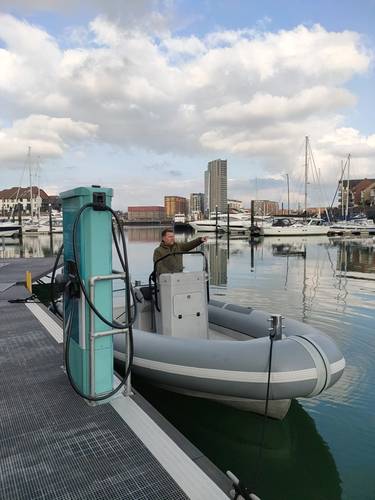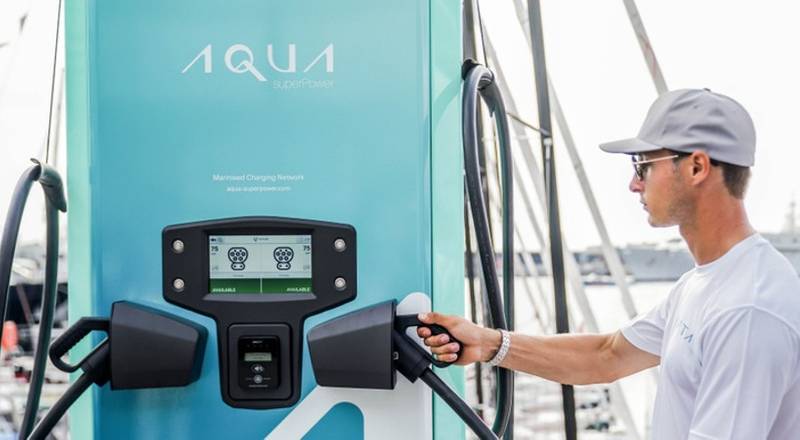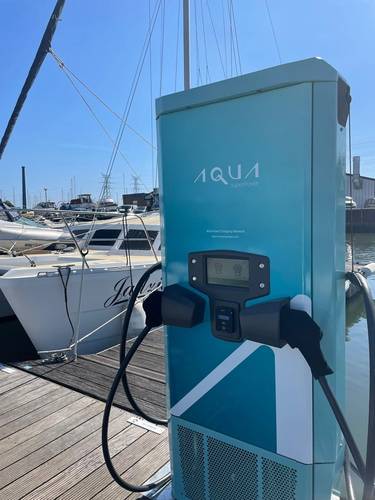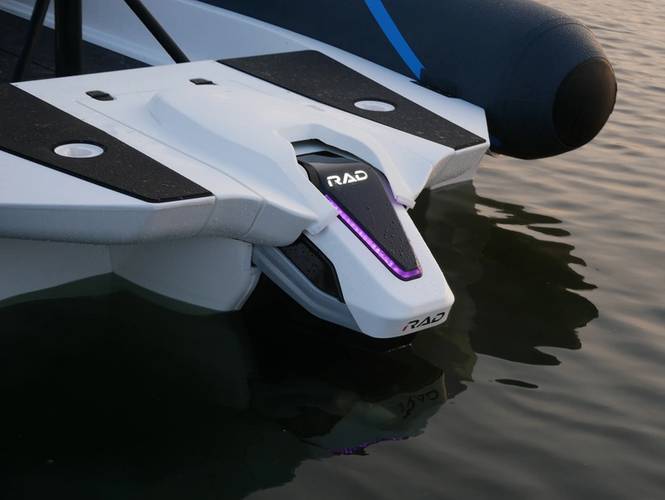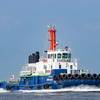Transatlantic Partnership to Deliver First Vessel-to-Grid Project for Marine Electrification
The consortium consisting of UK and Canadian companies, led by Aqua superPower and BlueGrid, have launched the first transatlantic vessel-to-grid (V2G) project that will deploy bi-directional chargers and electric vessels in U.K.’s Plymouth and Canada’s Halifax.
The $2.3 million (£1.8 million) CanUK V2G project will feature bi-directional charging technology which lets electric vessel batteries both receive and supply energy, cutting carbon emissions, slashing e-vessel costs, boosting grid flexibility, and speeding up e-vessel adoption.
The project consortium is represented by marine charge point operator Aqua superPower leading the UK partners, with vessel manufacturer RS Electric Boats, and drive solutions provider RAD Propulsion.
They are supported by the University of Plymouth with expertise in marine electrification and battery chemistry.
The Canadian partners are led by marine V2G software provider BlueGrid, with marine technology and marine market experts COVE, Lennox Island First Nation for skills training, and Dalhousie University providing knowledge of battery energy systems.
The CanUK vessel-to-grid project will adapt bi-directional tech from the automotive sector for marine use. Lab testing of equipment and batteries will deepen understanding of marine battery performance under various conditions. V2G standards will be integrated into RS Electric Boat’s 63kWh workboats, with R&D focused on battery and drive solutions.
A management platform will link all components, and testing will confirm interoperability. Without specific marine V2G regulations, best practices will be collaboratively developed with key regulators.
The project will prove the value of marine V2G and develop clear customer product and service offers across the consortium. These solutions will be tested with key stakeholders and end-users for whom the new solution will result in carbon reductions, vessel operating cost savings and more desirable vessel solutions.
V2G's technology innovation will assist with the adoption of communication protocols to ensure interoperability between vessels, chargers, grids, and software management systems.
Innovate UK, part of UK Research and Innovation, is working with Canada’s Ocean Supercluster to invest a combined total up to $5 million (£4 million) in innovation projects that can involve a collaboration of industry and academia. The funding supports projects to deliver innovative outcomes in ocean technology.
The CanUK vessel-to-grid project is funded through this R&D program with the aim of stimulating the development and implementation of innovative technologies in ocean technology, and to build technical capabilities required for the development and economically sustainable production of the next-generation of products and services.
"We're thrilled to lead the UK consortium and collaborate with our Canadian partners on this groundbreaking transatlantic project, showcasing the potential of bi-directional boat charging in different energy markets and environments,” said Adam Marshall, Chief Technology Officer at Aqua superpower.







